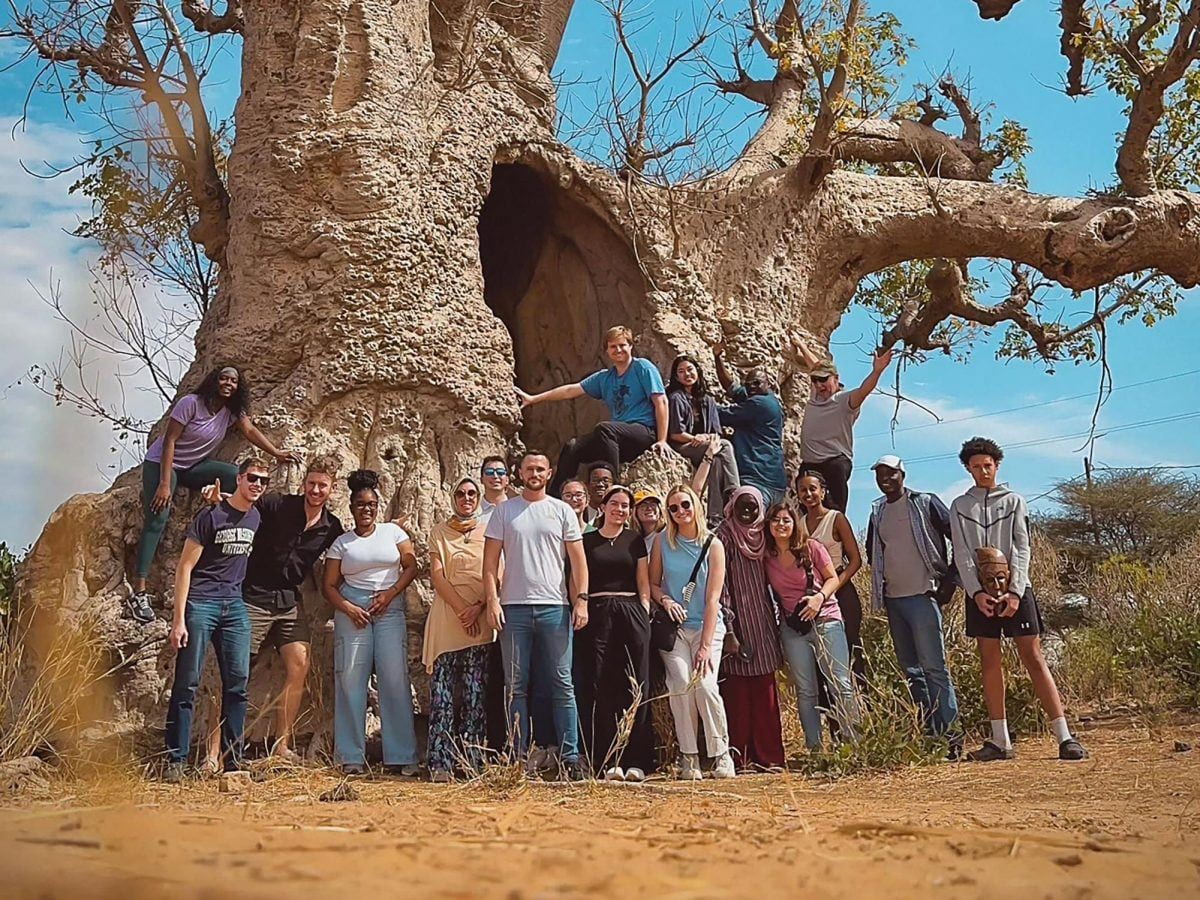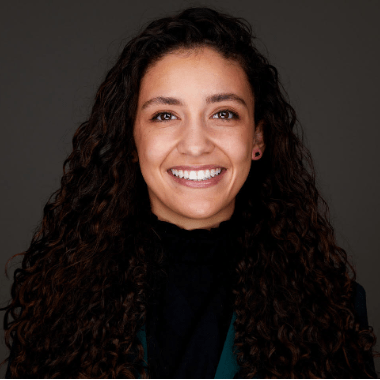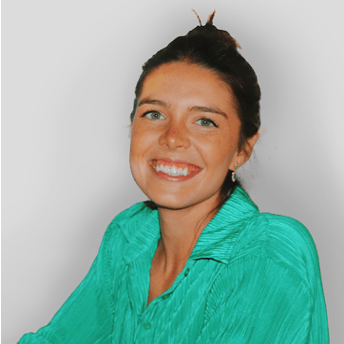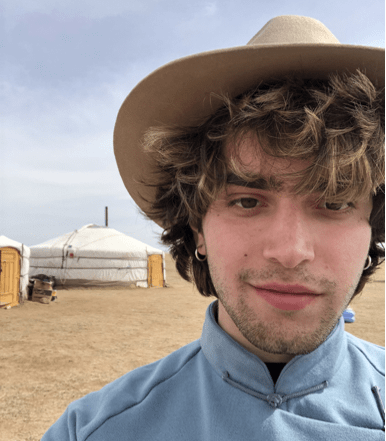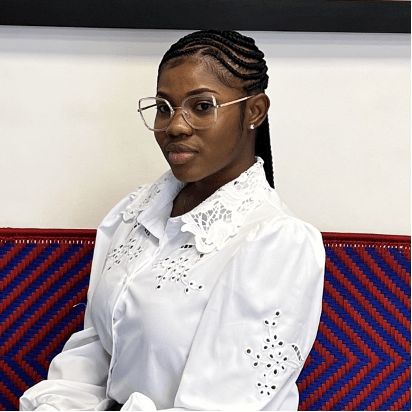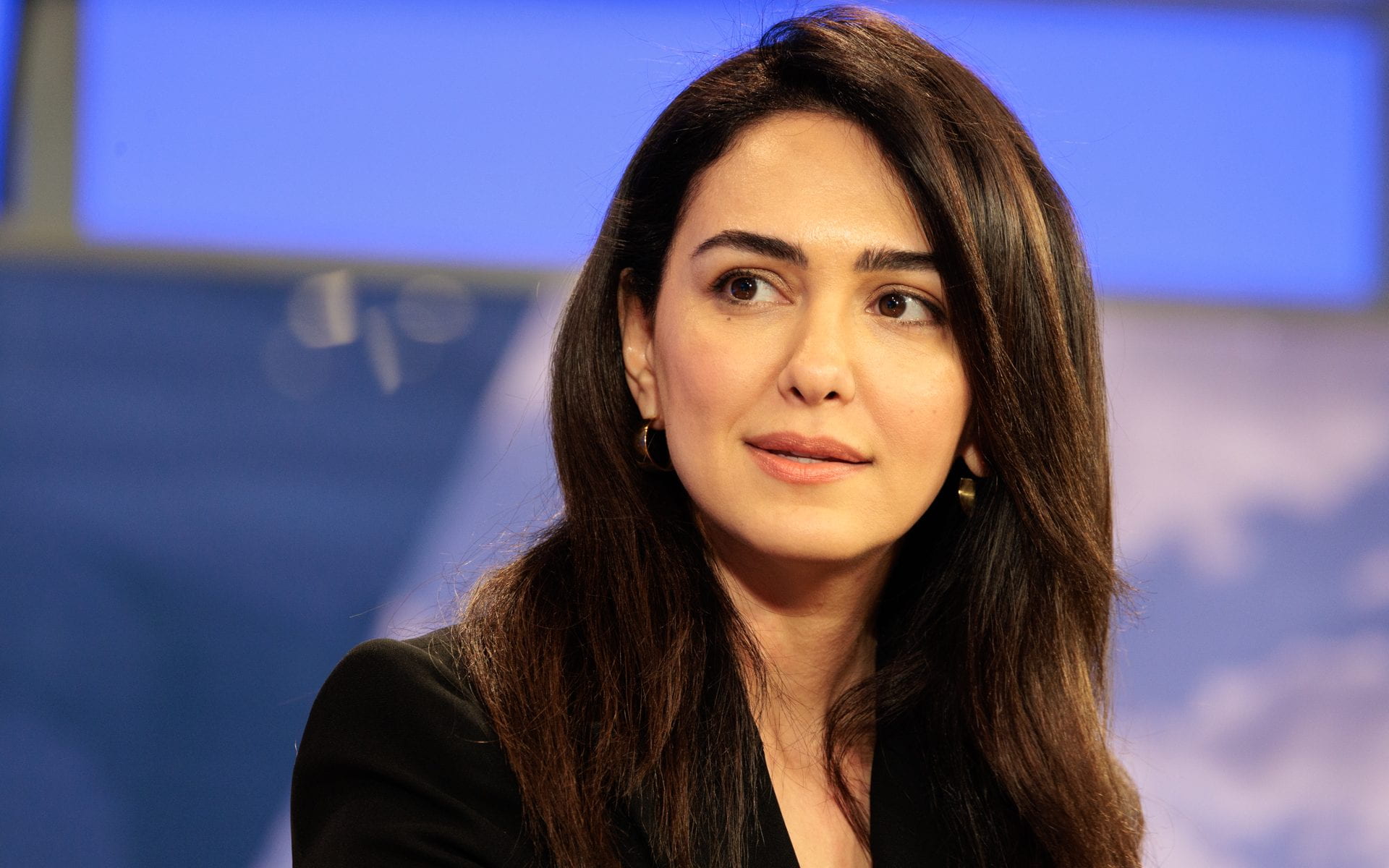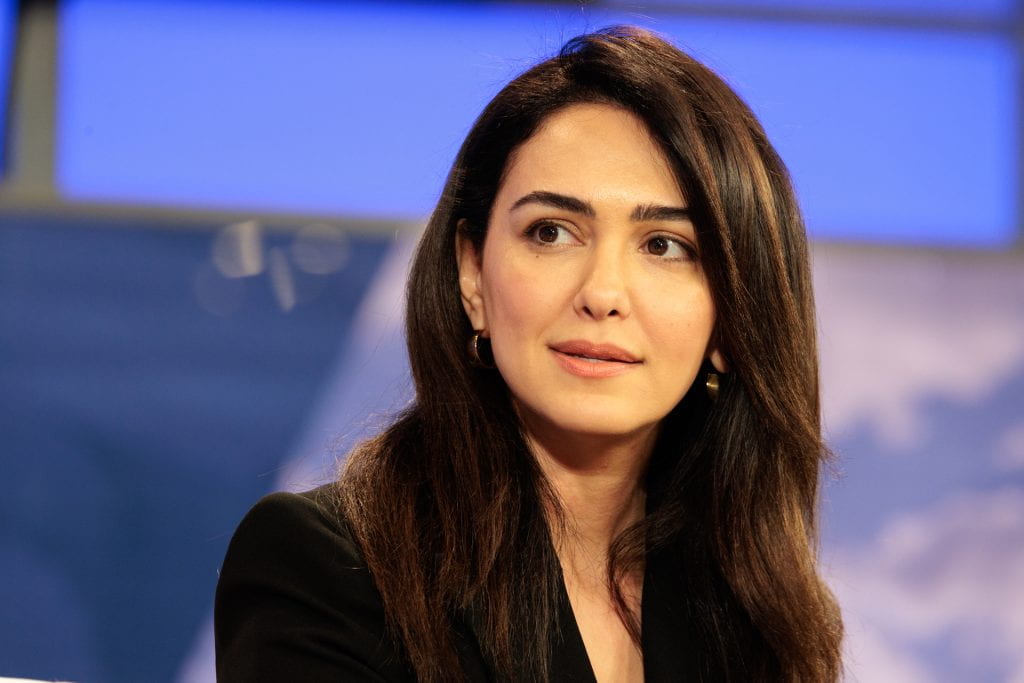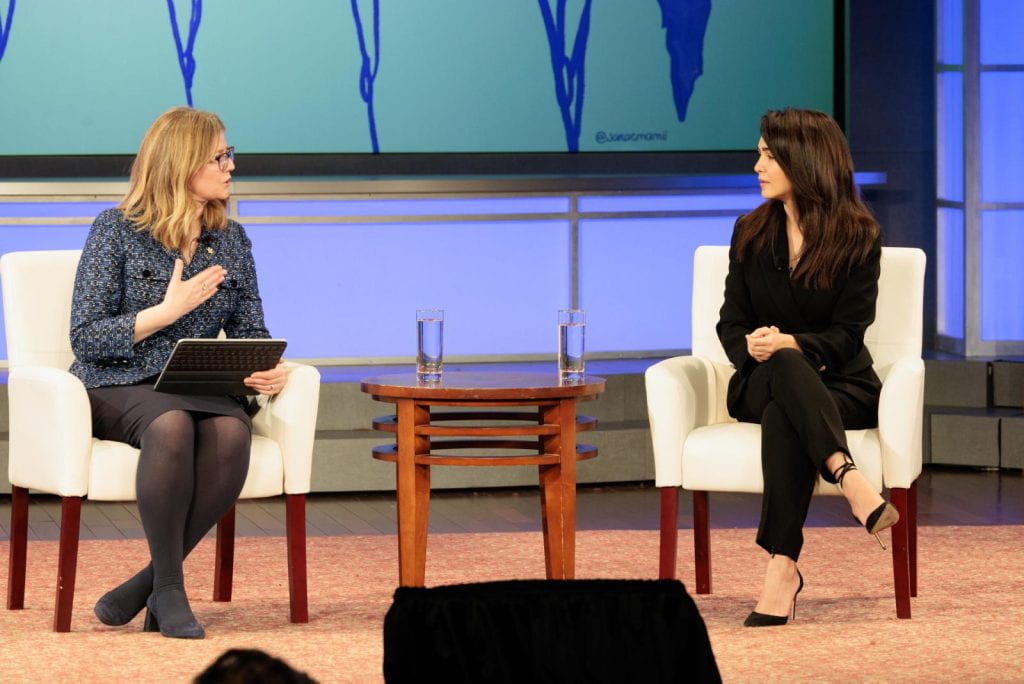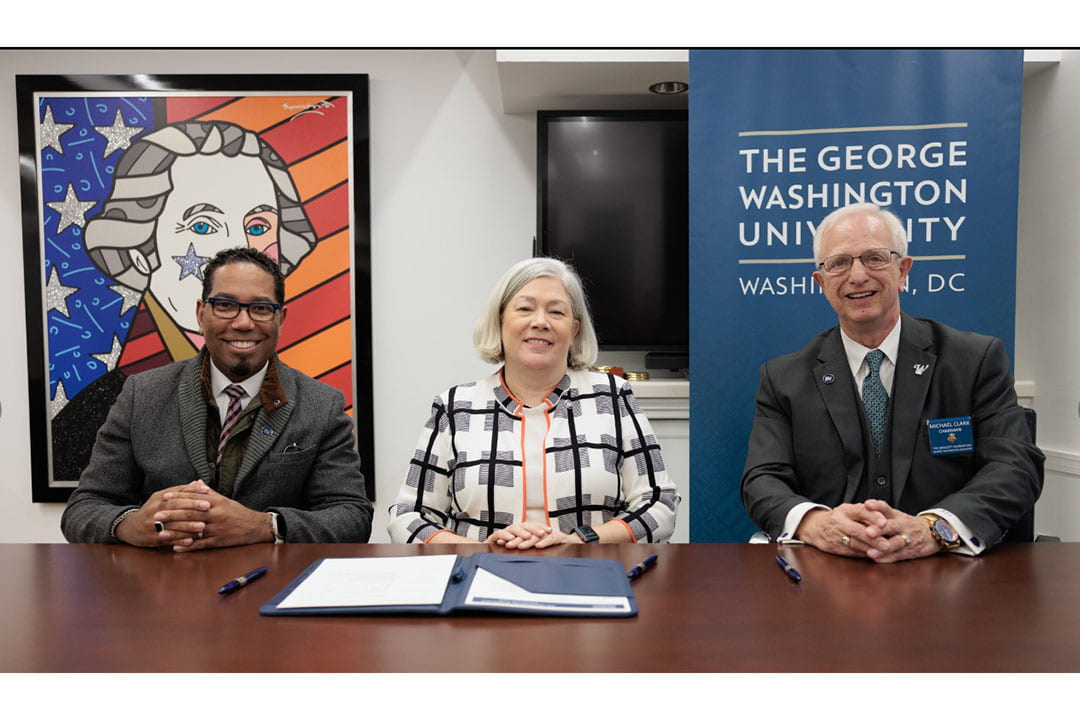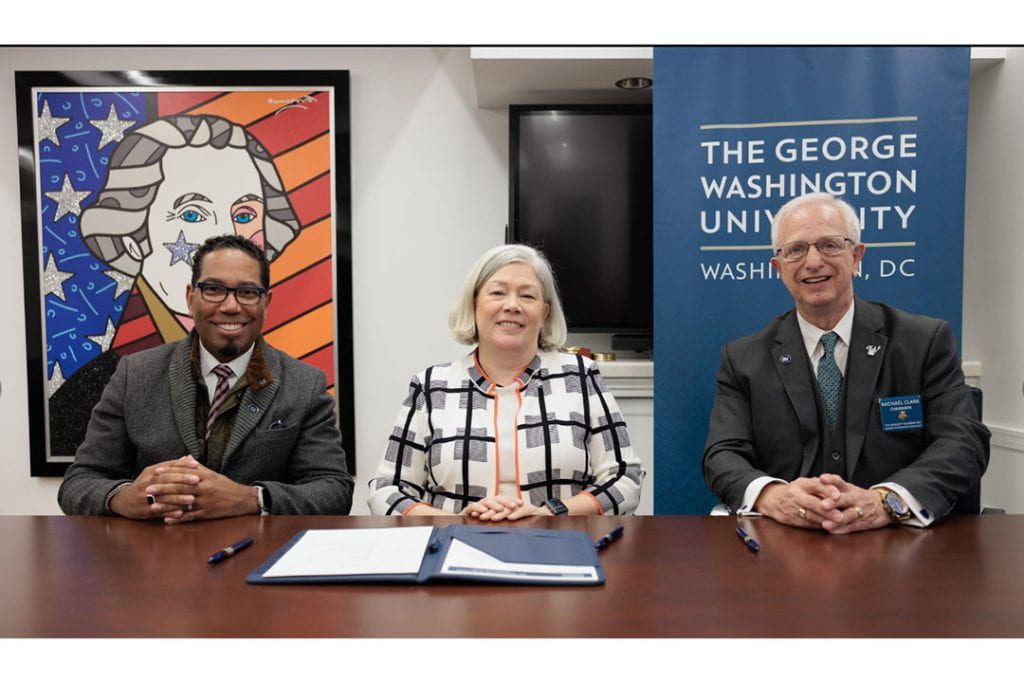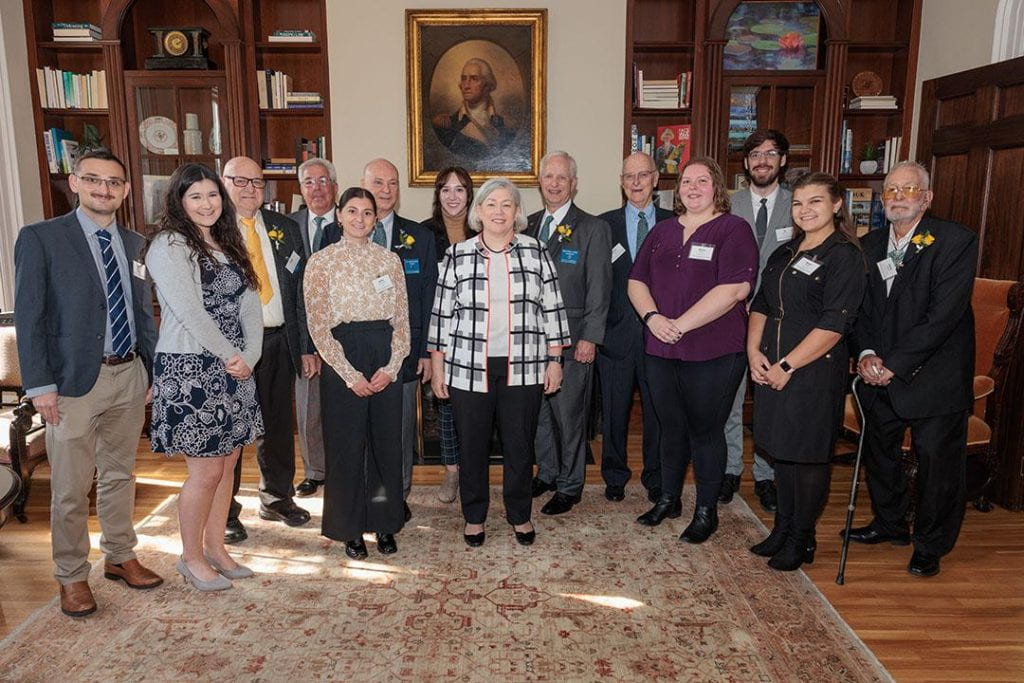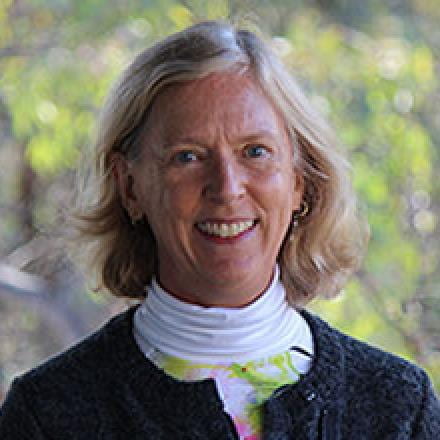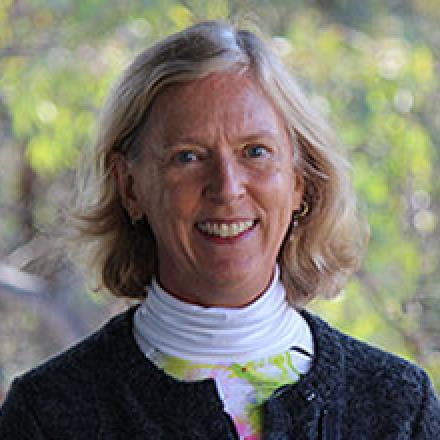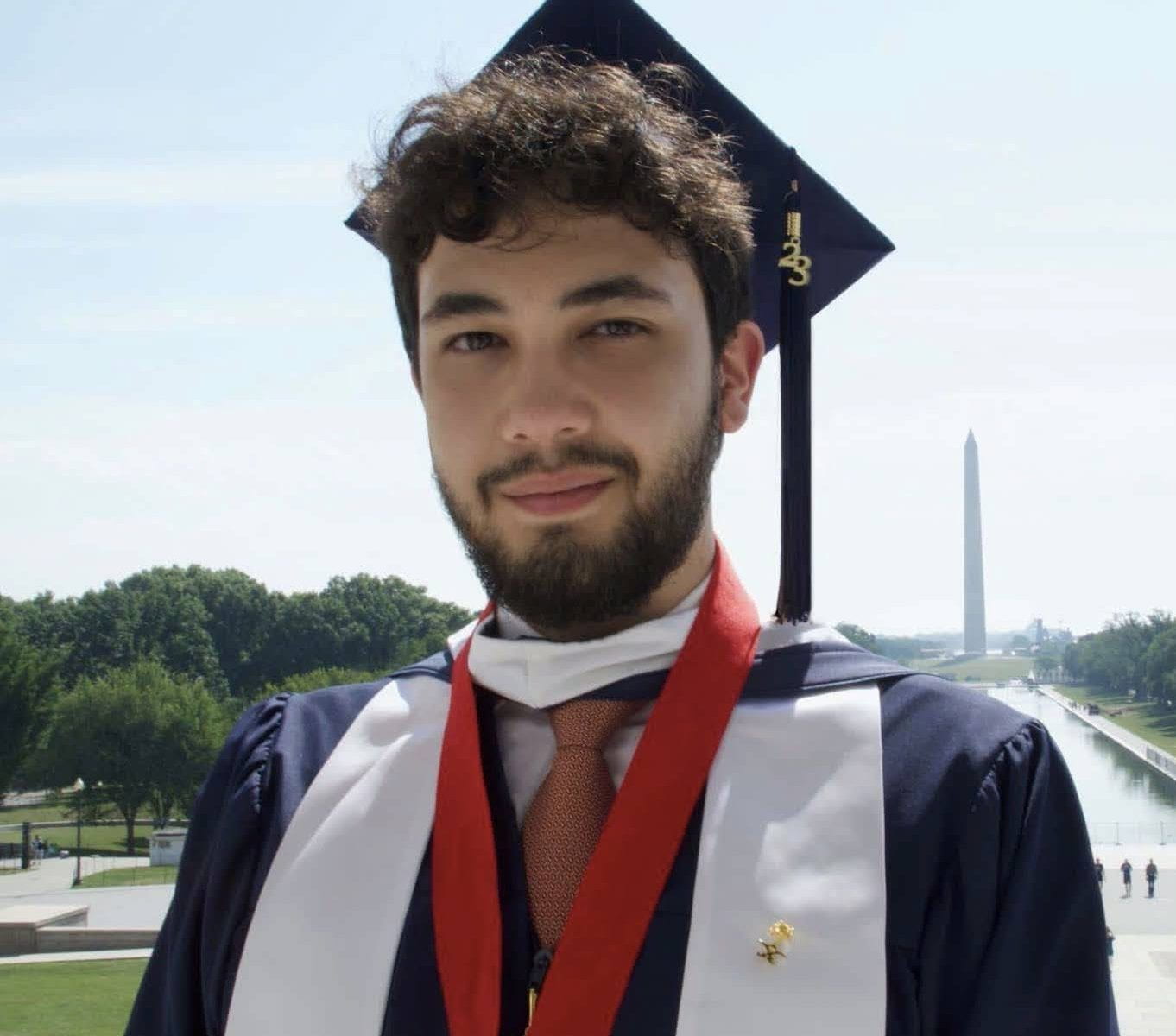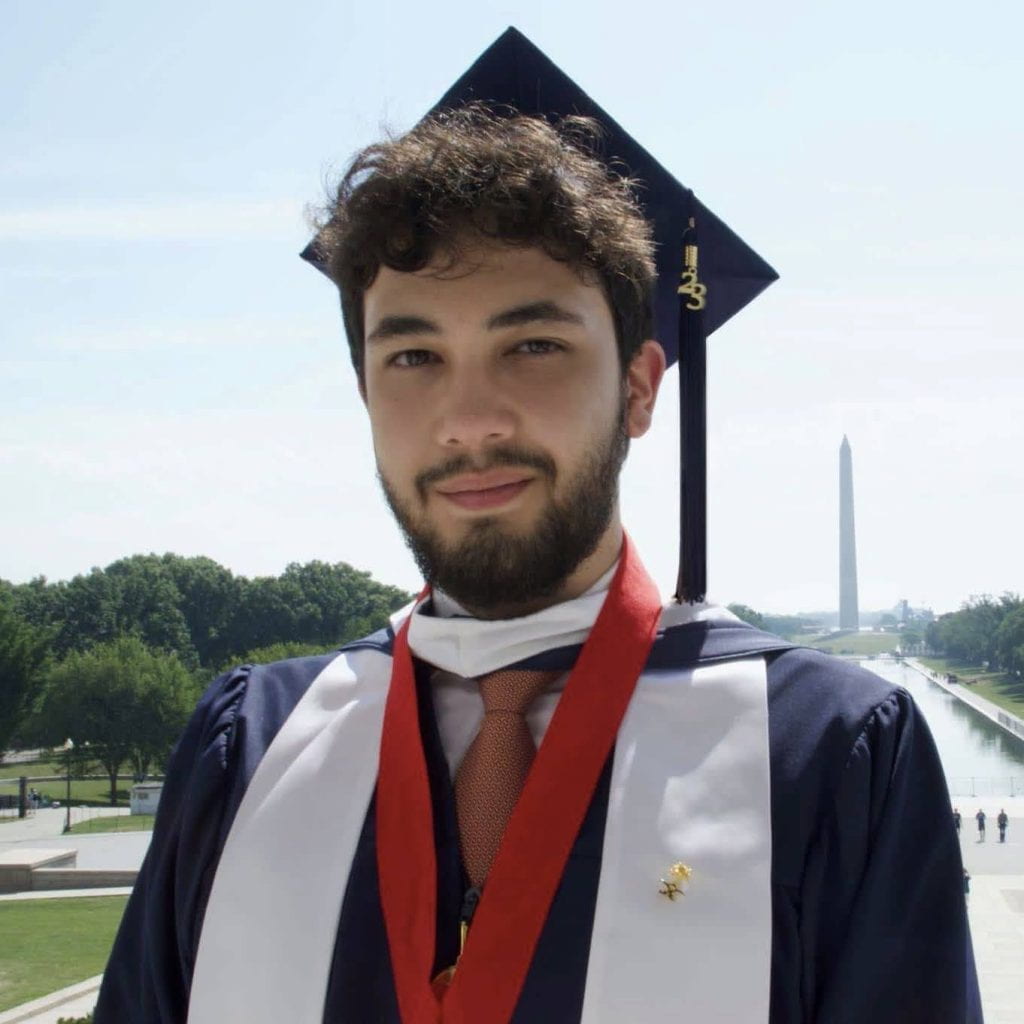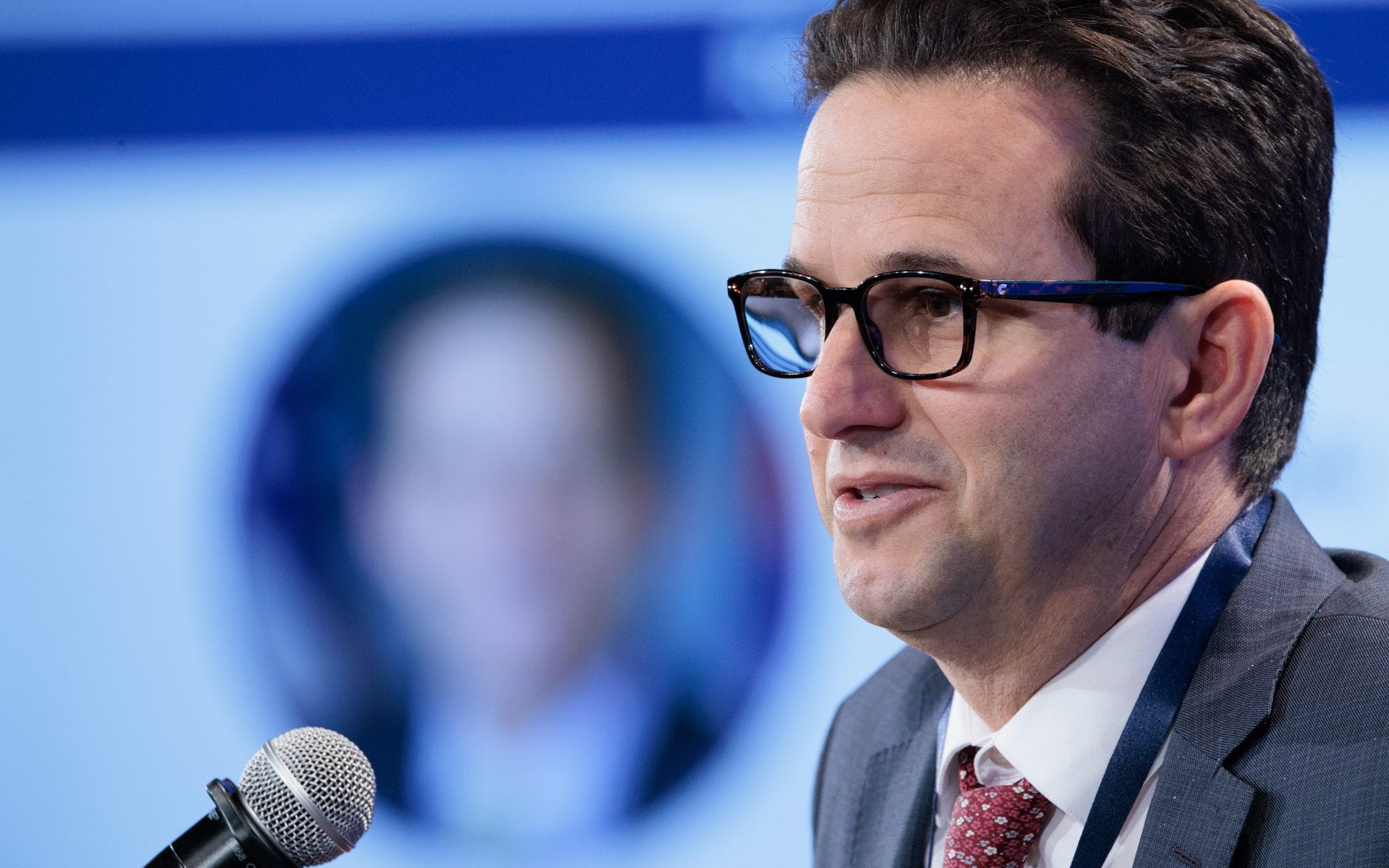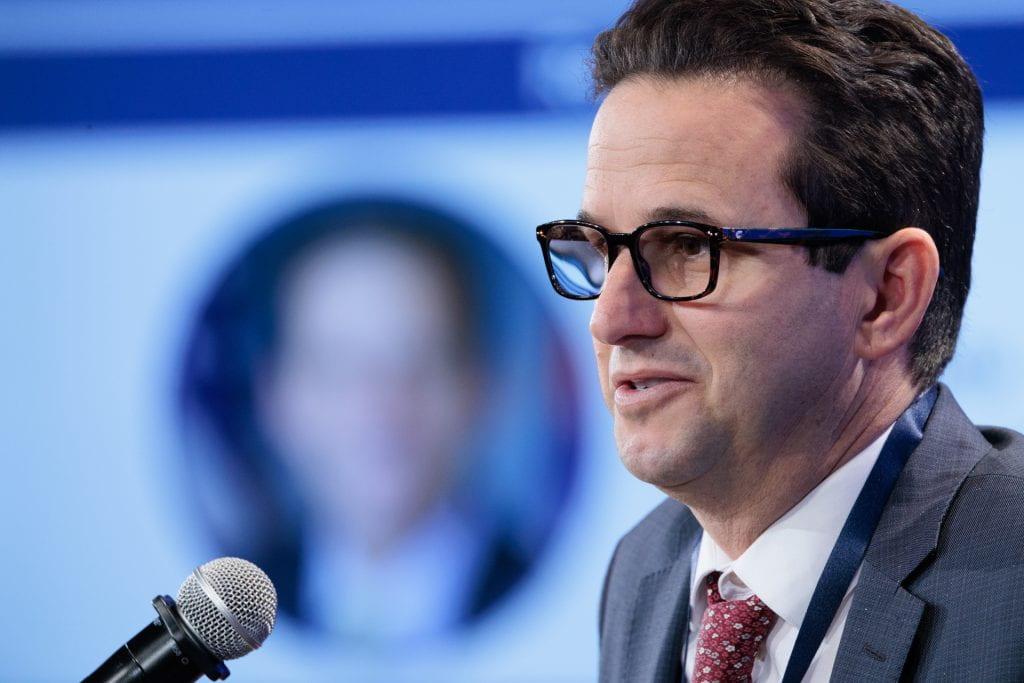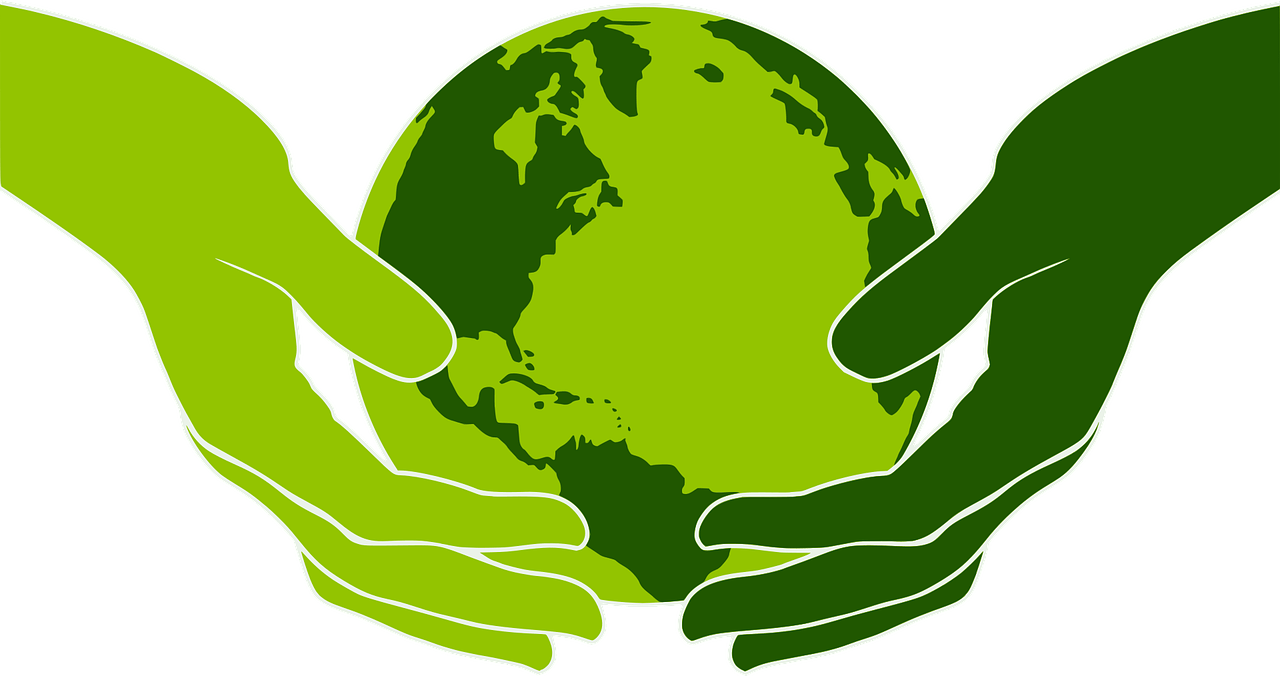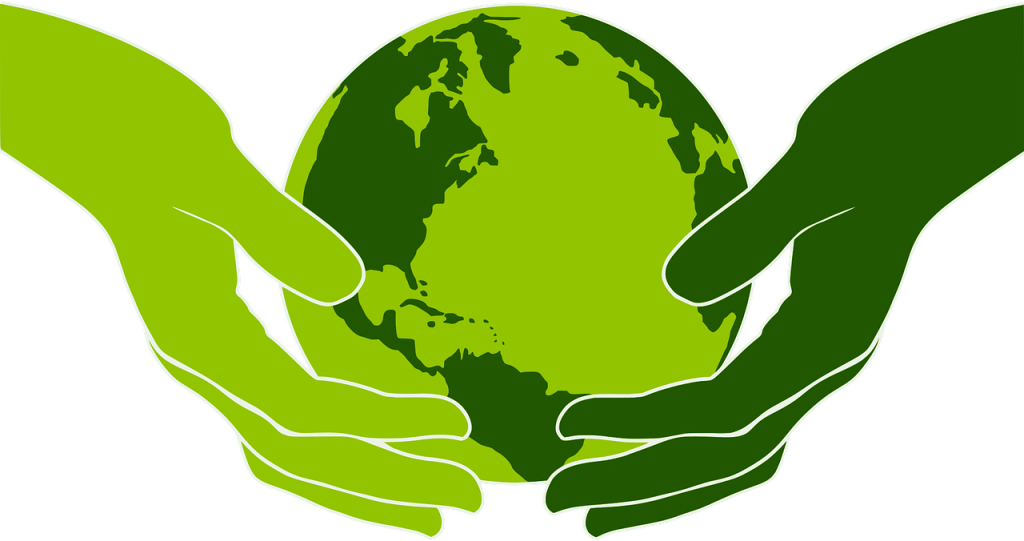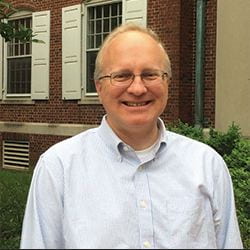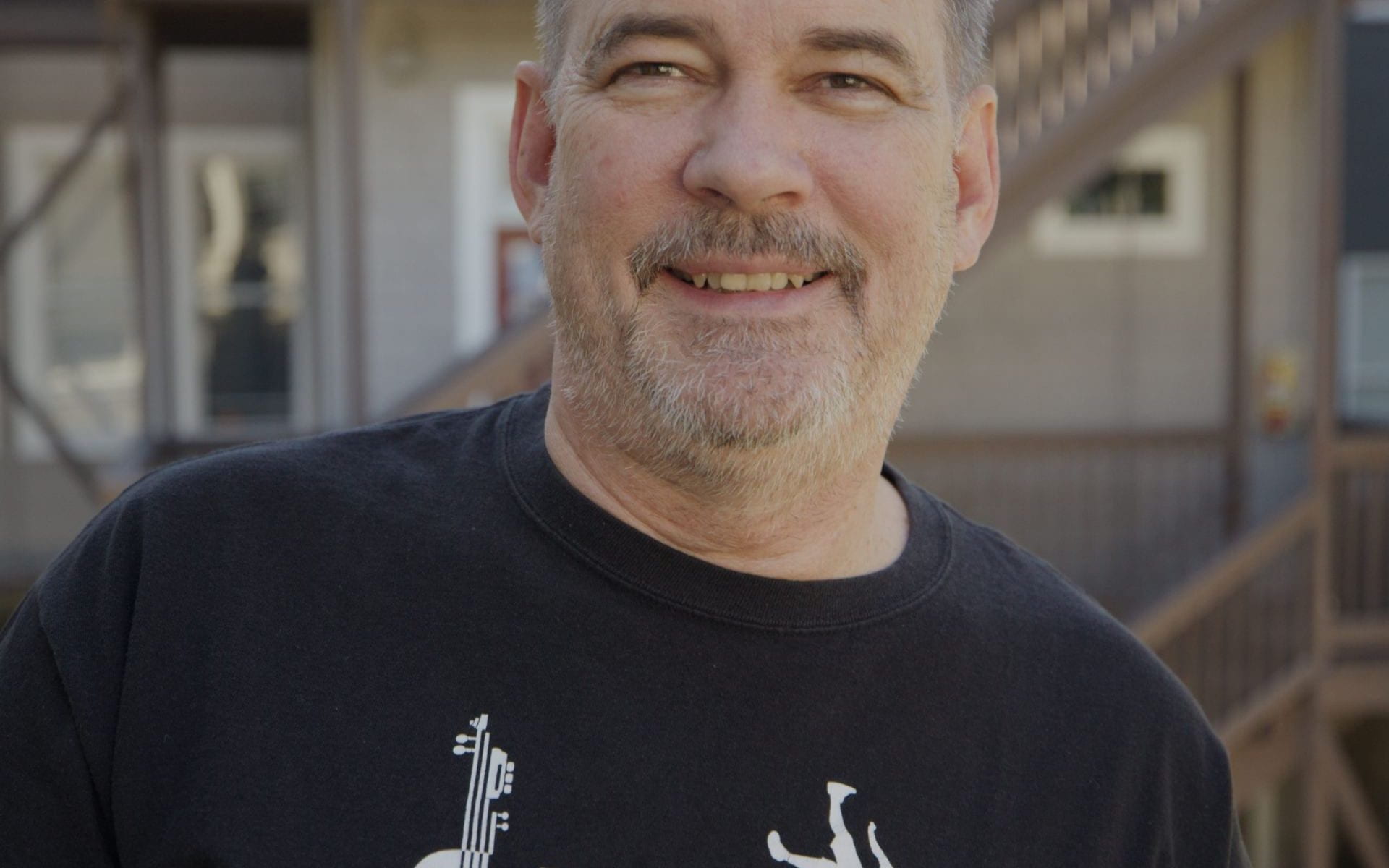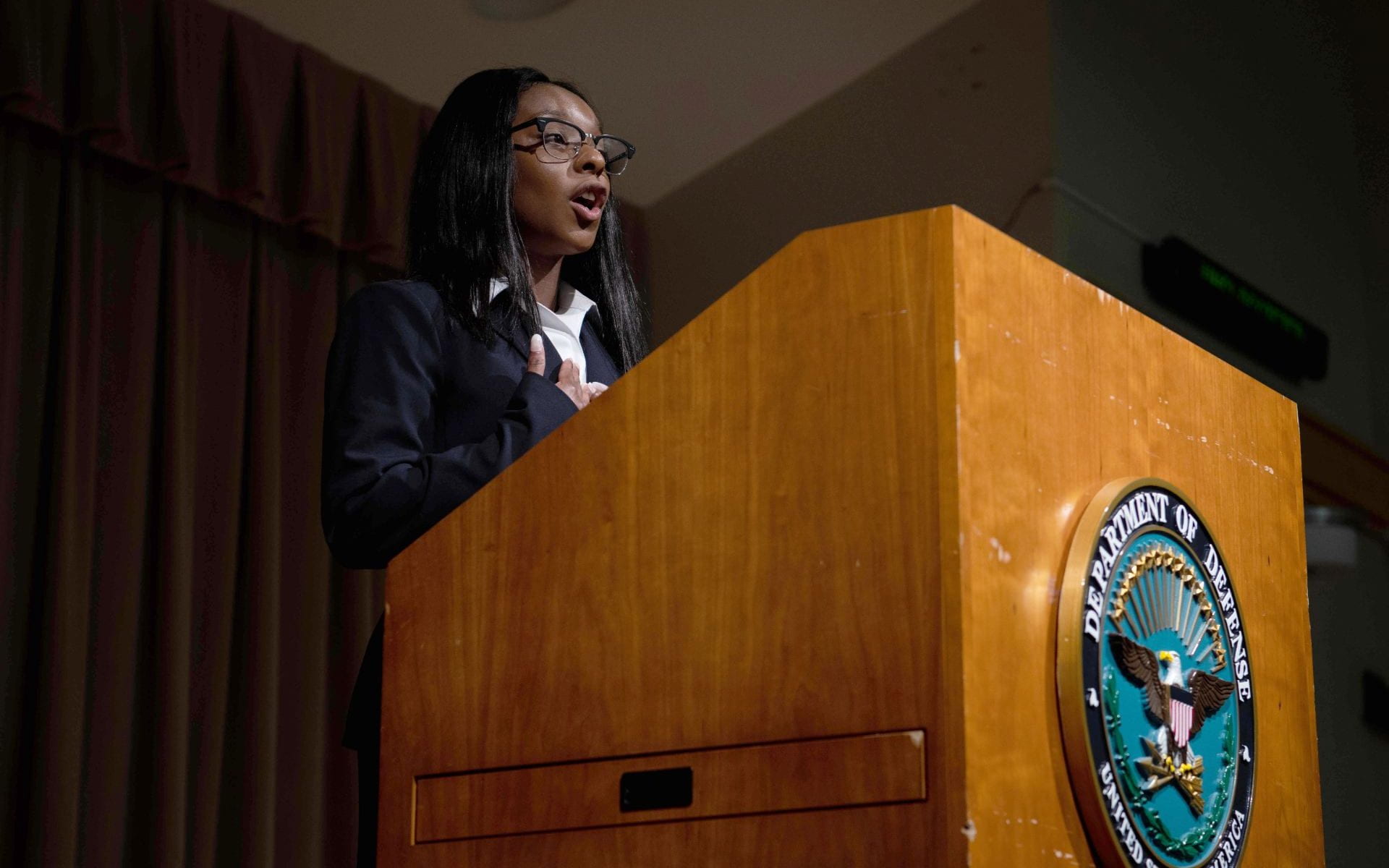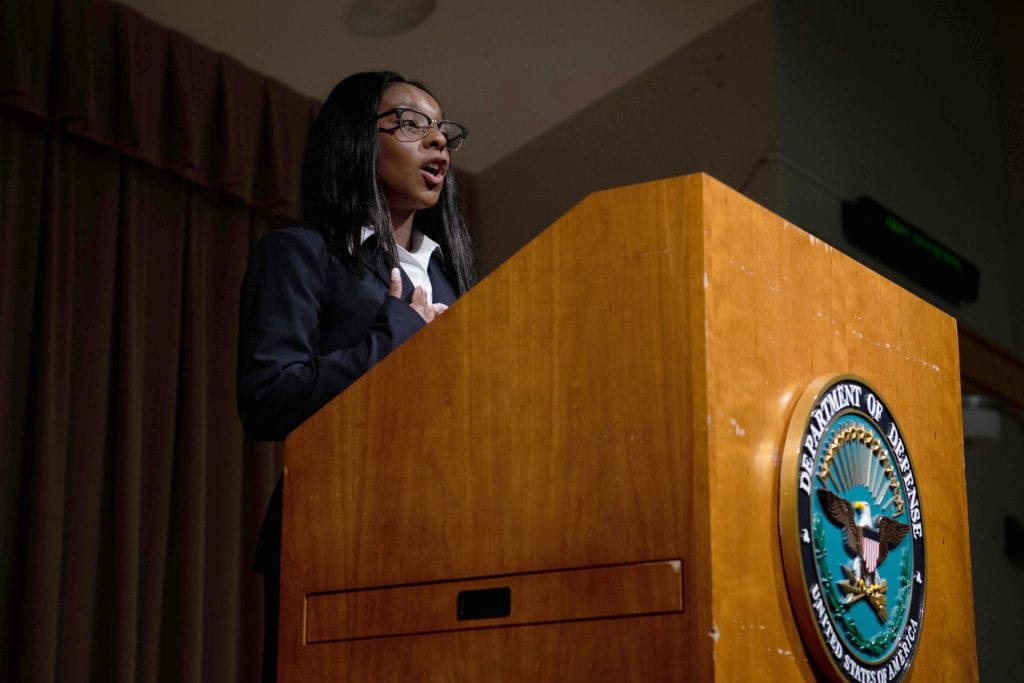Authored by: Fiona Riley, Assistant News Editor at The GW Hatchet
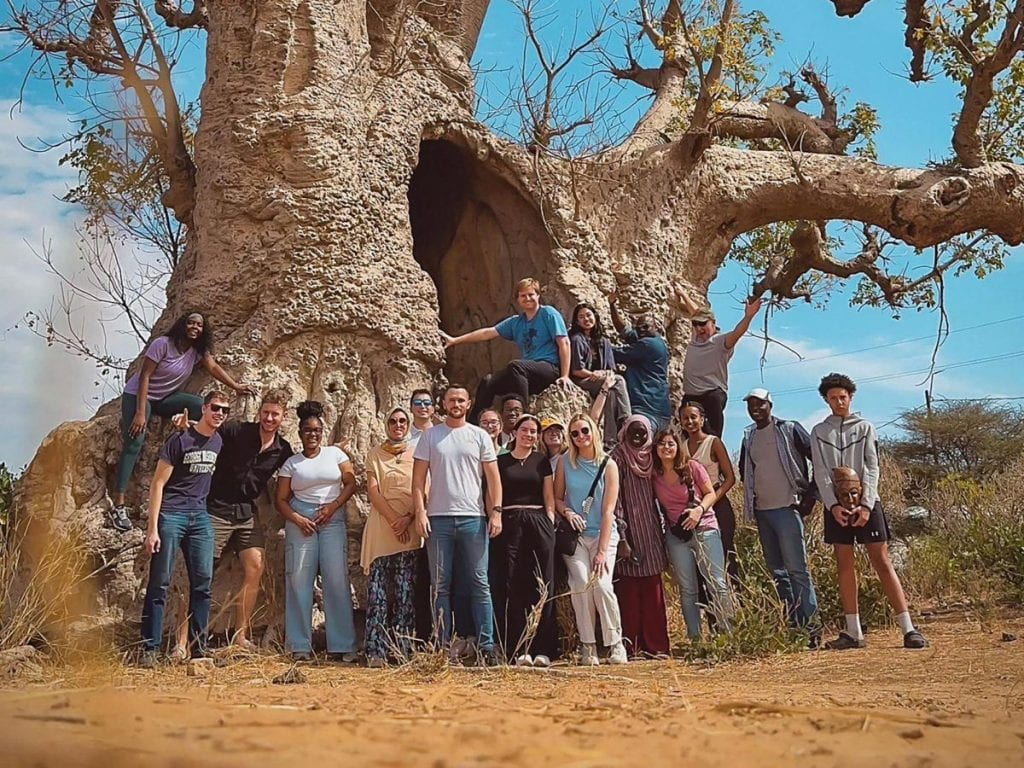
Elliott School of International Affairs students traveled to Senegal over winter break and met with foreign service officers, professors and locals in a short-term abroad course launched this year.
Sixteen undergraduate and graduate Elliott School students spent nine days of winter break attending conferences, focus groups and lectures on foreign influence in the country. Matthew Kirwin, a professorial lecturer who taught the course, said he wanted to give students a deep understanding of an African country because policymakers are interested in foreign influence on the continent and chose Senegal because it’s politically stable and easy to navigate.
“It was a dream come true for me to be able to do this, to see the students see Africa through my eyes because I was able to put together a program that I thought would be very insightful,” Kirwin said.
Kirwin, a division chief at the State Department, said he submitted the short-term abroad program proposal during the 2019-20 academic year. The three-credit course, Foreign Influence in Senegal: Exploring the Effects and Senegalese Perceptions, counted as credit for Special Topics in African Studies, a course offered to Elliott School undergraduate and graduate students.
He said about 37 undergraduate and graduate students applied in October 2023 for 16 spots.
Kirwin created the trip itinerary with the help of the West African Research Center, a group that connects American researchers with West African countries. He said the center connected him to Senegalese professors and helped him plan trips to significant cultural and political locations like Gorée Island, a former outpost for the slave trade located off the coast of Dakar, and Touba, a town with the biggest mosque in West Africa.
“We went back and forth on what things made most sense to do, keeping in mind trying to make it affordable for students,” Kirwin said.
He said through connections from his job at the State Department, he also coordinated a meeting with several foreign service officers to explain the U.S. relationship with Senegal. The U.S. trades with Senegal and views the country as a stable democracy in Africa and a “model” for religious and ethnic tolerance, according to the Bureau of African Affairs’ bilateral relations fact sheet.
Kirwin said the class met on campus several times before the trip to learn about Senegal and hear student presentations on aspects of Senegalese culture like food, religion, politics and water sports like surfing. He said during the first pre-departure meeting, he brought in the principal deputy assistant secretary for global public affairs Kristin Kane, who previously served as a foreign service officer in Senegal, to provide insight into U.S. foreign influence in Senegal.
Before the start of the trip, Kirwin said he created an Instagram page for students to document the trip. He said he required students to upload pictures with captions that summarized what they learned on a given day at least three times during the trip.
Kirwin said students talked with local Senegalese people in focus groups to learn about the culture and how foreign influence is viewed by locals. He said students also attended lectures on relations between the United States, Russia and China to learn about how different countries approach foreign affairs.
“There’s this foreign power competition that’s going on where every country is trying to promote their values and promote their interests,” Kirwin said.
Kirwin said foreign influence in Africa often looks like “soft power,” meaning countries like the United States, Russia, China, France and Turkey attempt to form relationships with African countries through infrastructure projects and by asserting their culture, music and sports in cities. He said countries like the United States work to appear as partners with Senegal by bringing Senegalese basketball players to play in the NBA while other countries like China build roads and bridges.
“Turkey, for example, built the new soccer stadium in Dakar, and the Senegalese are very passionate about soccer,” Kirwin said.
He said the group will not meet in person again but students will work together on a 15 to 20-page policy paper due in February that incorporates information collected from panel discussions, academic lectures and daily interactions with Senegalese people. He said the final project is an opportunity for students to synthesize the cultural, historical and political information they learned on the trip and create a paper that American policymakers could use to better understand Senegalese culture.
“We talked about what are all the data points that we’ve collected and how can we refine our research question to write something that’s going to be of interest,” Kirwin said.
Christopher Zrazik, a junior studying international affairs and public policy, said he learned how countries like China, Turkey and the United States exert influence on Senegal through foreign investment in infrastructure projects.
“Through our lectures, through the focus groups that we engaged in and even observations as we drove through Dakar and in the surrounding areas, it really revealed the extent to which foreign powers are establishing themselves in the country,” Zrazik said.
Bryson Handy, a first-year studying international affairs and economics, said his favorite part of the trip was when the group saw a rally for Senegal’s upcoming presidential election in February while visiting the African Renaissance Monument in Dakar. He said the experience launched him into Senegalese politics and presents an example of the benefits of visiting an African country and learning through first-hand experience about the political system.
Deseree Chacha, a senior studying international affairs, said she learned about cultural diplomacy and development from the group’s tour guides and driver. She said during the two focus groups with students and people in the workforce she learned about Senegalese lifestyles, perspectives on foreign influence and Senegal’s upcoming presidential election.
“The whole group took a step back, we were there mainly just to listen to observe, to kind of be one with the Senegalese people,” Chacha said.

